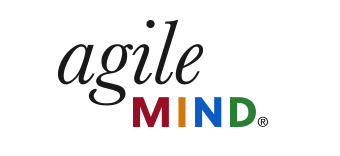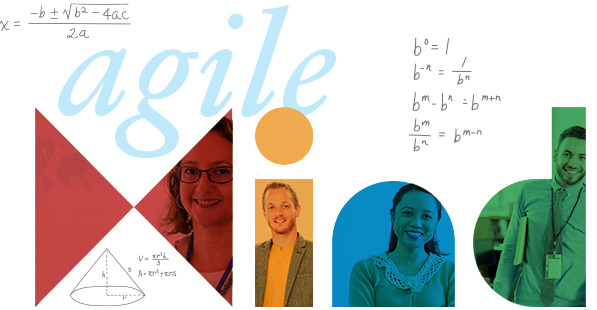Advancing the California Mathematics Framework with Agile Mind
NOVEMBER 7, 2024
The 2023 California Mathematics Framework outlines a bold vision for rethinking how math is taught, emphasizing conceptual understanding, inquiry-based learning, and equitable access for all students. At Agile Mind, our programs align closely with these goals, empowering educators to engage students meaningfully, promote equity, and support all learners, including English Language Learners (ELLs) and those on data science pathways.
Here’s how Agile Mind’s programs advance key principles of the California Math Framework:
1. Learning Organized Around Big Ideas
Agile Mind’s curriculum emphasizes big ideas that guide students’ understanding and help connect new concepts with prior knowledge. Our programs—and our supports for educators—illustrate how major mathematical ideas unfold over time, giving students a coherent learning experience. This focus on essential concepts fosters deeper understanding and ensures students stay engaged throughout their mathematical journey.
2. Emphasis on Inquiry-Based Instruction
Our programs are designed to engage students in solving meaningful, real-world problems. Inquiry-based instruction motivates learning by inviting students to explore new ideas through animations, simulations, and real-world scenarios. These activities build conceptual understanding and allow students to reinforce what they’ve learned in both familiar and novel contexts.
By anchoring learning in real-world scenarios, students connect mathematical concepts to their own experiences. This approach benefits all students, especially English Language Learners, by making abstract concepts more accessible and meaningful. It also encourages students to persist through challenges, enhancing their motivation and problem-solving skills.
3. A Focus on Equity and Engagement
Research shows that access to rigorous mathematics increases students’ chances of success in both postsecondary education and the workforce. However, educational inequities have long limited access to high-quality math instruction, particularly for students in greatest need.
Agile Mind’s programs foster a culture of high expectations for all students, ensuring that every learner has the tools and support to succeed. When students believe in their ability to learn—and when educators provide opportunities to demonstrate understanding in multiple ways—they achieve at higher levels and persist longer in challenging tasks.
Teaching for Equity and Engagement describes our approach and strategies for creating inclusive classrooms that engage all students and promote academic achievement, regardless of background.
4. Supporting Multilingual Learners
Agile Mind’s programs provide robust support for multilingual learners, helping them build both mathematical understanding and academic literacy. Our Teaching English Language Learners white paper outlines practical strategies to ensure these students can fully participate in rigorous math instruction. Through targeted scaffolding and language supports, our programs empower learners to engage confidently and develop the skills they need to succeed.
5. Preparing Students for Data Science Pathways
The future demands strong data literacy, and Agile Mind is committed to preparing students for data science pathways. Working with the Charles A. Dana Center and initiatives like the Launch Years Initiative, we integrate data science concepts across our programs to ensure students are equipped for modern academic and career opportunities.
From middle school to high school, we are actively enhancing students’ abilities to understand and work with data, reflecting the evolving demands of mathematics education and ensuring students are ready for a data-driven world.
6. Leveraging Technology, Productively
Agile Mind harnesses technology as a tool for engagement and learning, not just delivery. Our programs use interactive simulations, animations, and assessments that provide students with immediate feedback and allow teachers to monitor progress in real-time.
Technology helps personalize learning, but it does not replace educators. With Agile Mind, teachers are able to give students multiple ways to explore mathematical concepts at their own pace. Additionally, Agile Mind’s digital tools are designed to be accessible to students from all backgrounds, ensuring that technology enhances equity rather than deepening divides.
Transforming Math Education with Agile Mind
As education systems across California align their instructional practices with the California Mathematics Framework, Agile Mind’s programs offer a proven, practical pathway to realizing its vision, and transforming math classrooms into spaces where all students can thrive.
Ready to Learn More?
Join experts from Agile Mind and the Dana Center as they explore how you can achieve key expectations of the California Mathematics Framework in your classrooms. Register below for our free upcoming professional learning session!



